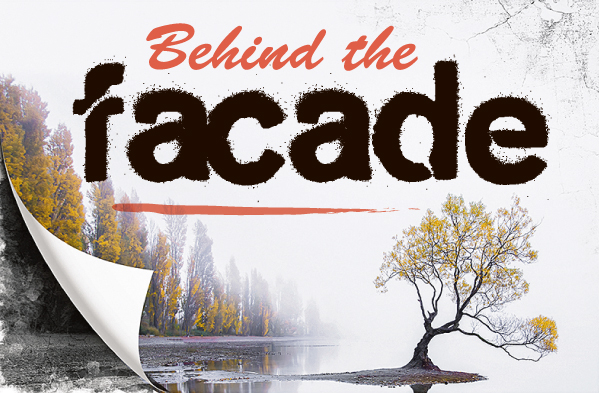
In the final instalment of Behind the Facade this year, Aspen Bruce explores how alcohol influences underage drinking and decision making.
Police in Wanaka have bought in a rugby giant to hammer home the message of keeping young people safe this New Year’s Eve.
Sir Steve Hansen has fronted a video targeting teenagers from Christchurch secondary schools in an effort to reduce the amount of alcohol-related harm experienced in Wanaka over the New Year period.
In the past few years, hundreds of Christchurch teenagers have converged on the town to ring in the new year, and with that has come more alcohol-related harm.
Many of the incidents reported involved visitors from out of town.
Wanaka businesses and Christchurch Boys’ High School year13 dean Wayne Waller also feature in the video.
The video was presented by police to the Queenstown Lakes District Council last week.
Councillor Cody Tucker said it was great to see the police proactively engaging with the community prior to New Year’s Eve.
‘‘(I’m) Stoked to see Steve Hansen help champion this initiative with some wise words to help our rangatahi navigate certain social situations
‘‘New Year’s can be a nerveracking time for locals and this video reminds us of the importance of having a plan, looking out for each other and respecting this place we call home,’’ Cr Tucker said. As reported in last week’s The News and Wanaka Sun, the concentration of youth and underage drinking over New Year was a concern.
University of Otago department of psychology senior lecturer Dr Ryan Ward said alcohol was referred to as a “dirty drug” in pharmacology.
“The way you pinpoint what a drug is doing in the body is you look at what sort of receptors it’s working on.
“The way that neurons work is they have these proteins called receptors where neurotransmitters bind. Drugs act like neurotransmitters and can bind to receptors, and that affects chemical signals. There’s a bunch of different kinds of those types of receptors —like dopamine, serotonin, but even within those particular receptor types, there’s a whole bunch of subtypes,” he said.
For dopamine — the receptor that is involved in reward and pleasure — there was at least five different subtypes, he said.
“When we say that a drug is dirty we mean that it doesn’t specifically target a particular receptor, and has wide-ranging effects across a number of systems,” Dr Ward said.
Alcohol activated a lot of different systems at the same time.
“In general terms you have this brain balance which is regulated by a balance between a glutamate (the main excitatory neurotransmitter in your brain) and GABA (the main inhibitory neurotransmitter) activity, and that balance is very crucial.
“If you tip it one way or another, you can have problems and basically one of the things dirty drugs do, like alcohol, is they mess up that balance,” he said.
Alcohol had the double effect of inhibiting glutamate and also increasing GABA activity, he said.
“Which means it’s increasing the already inhibitory action of that neurotransmitter, so you basically have a double whammy of depressing the brain function in a bunch of different areas,” Dr Ward said.
These two receptor systems were important to understand when considering how alcohol affected different ages, he said.
The two receptors were influential in the part of the brain known as the prefrontal cortex, which was responsible for decision-making and rational thinking.
Other brain areas such as the reptilian part and limbic system process sensory information, motivation and memories from what occurred in similar situations.
“So you have all these different brain areas pulling together information from different aspects of your environment, and all of that gets sent to the prefrontal cortex which synthesises all of that, and decides what the best course of action is,” Dr Ward said.
The proper functioning of the prefrontal cortex was dependent on the balance of glutamate and GABA, he said.
“If you mess that up with alcohol you’re going to mess up decision-making and you can see this anecdotally in the way people behave when they’re drunk.
Crucially this part of the brain did not fully form until early adulthood, he said.
“You can see this with adolescents or kids. They don’t always appreciate the consequences of their decisions and this is because that part of the brain is not fully developed
“So if you take a partially developed part of the brain and you mess it up even further with alcohol, you’re going to have potentially very problematic results.
“There’s a lot of things going on in the background to make those brain areas develop normally, and if you introduce something that throws off the chain of chemical and genetic events that results in normal brain development, you have the chance of really messing something up long term,” he said.
‘‘We are not talking about acute effects, we are talking about long-term effects.’’
“Those two things are what I think make underage drinking really problematic,” Dr Ward said.
Behind the Facade wraps up on January 12.




